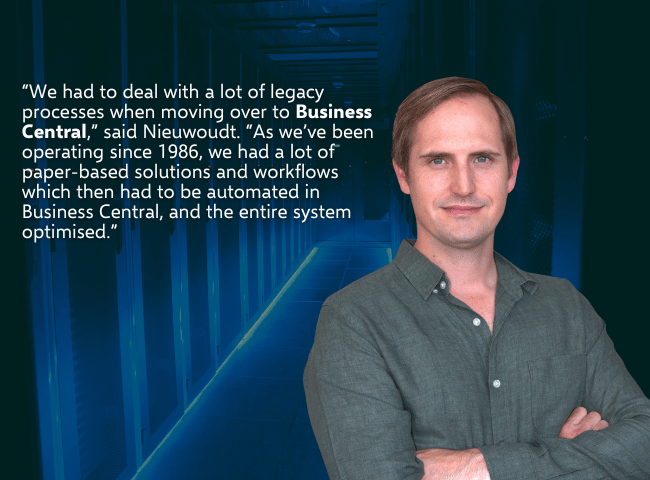Enterprise Resource Planning (ERP) systems are an essential component of modern businesses. In simple terms, an enterprise resource planning (ERP) system is a software system that helps you run your entire business, supporting automation and processes in finance, human resources, manufacturing, supply chain, services, procurement and more.
ERP systems thus help organisations to manage their day-to-day operations, streamline processes and improve efficiency. In the dynamic landscape of today’s business world, where change is ongoing and technology evolves rapidly, successful small, medium and enterprise businesses need to proactively manage their systems to stay competitive – and yet, one critical aspect that is often overlooked is the Enterprise Resource Planning (ERP) system.
The Need for Regular Assessments
Implementing an ERP system is a substantial investment, but it doesn’t end there. To ensure its continued effectiveness, businesses should consider performing regular ERP assessments every three to five years. Here are a few compelling reasons why:
- Business requirements change over time: As a business grows and adapts to market shifts, its operational requirements evolve as well. The ERP system that once perfectly aligned with your business processes may now exhibit gaps or inefficiencies. Regular assessments provide a structured approach to identify evolving needs, ensuring the ERP system continues to support the organisation effectively.
- Technology advances rapidly: In the ever-evolving tech landscape, ERP systems continuously receive updates and new features. Regular assessments help to ensure that your ERP system stays current with the latest technological advancements. This enhances system performance while also allowing your business to take advantage of innovative features that could significantly affect efficiency and decision-making.
- Cost savings: Efficiency and cost-effectiveness go hand in hand. Regular ERP assessments can uncover areas where the system can be optimised, leading to substantial cost savings. Identifying manual processes that can be automated, streamlining workflows, and eliminating redundant tasks can result in improved operational efficiency and reduced long-term expenses.
- Improved efficiency: For any business operation, efficiency is a key metric. Regular assessments pinpoint areas within the ERP system that can be fine-tuned to enhance overall efficiency. This might include streamlining processes, reducing processing times, minimising errors and ultimately improving customer satisfaction through smoother interactions.
- Compliance requirements: Staying compliant is not only a legal necessity but also a fundamental aspect of risk management, and regulatory landscapes are dynamic and subject to change. Regular ERP assessments ensure that your system aligns with the latest compliance requirements, as well as helping your business to stay ahead of compliance updates, avoiding potential legal issues and reputational damage.
A key ERP principle is the central collection of data for wide distribution. Instead of having a situation involving several standalone databases, ERP systems ensure that all users within the organisation can create, store and use the same data derived through common processes. At the same time, everyone in the business can be confident that data is correct, up to date and complete, and data integrity is therefore assured for all tasks.
Performing regular ERP assessments can thus help to ensure that the ERP system is meeting the business requirements, while being up to date with the latest technology as well as optimised for cost savings and efficiency.
Performing a Successful ERP Assessment
Here are some useful tips:
- Define your requirements: Before you begin the assessment process, it’s important to define your requirements. What are the business needs that the ERP system must meet? What are the key features and functionalities that are required? Defining your requirements upfront can help you select an ERP system that meets your needs.
- Involve stakeholders: It’s important to involve stakeholders from different departments and levels of the organisation in the assessment process. This can help to ensure that the ERP system is meeting the needs of the entire organisation and that everyone is on board with the changes.
- Evaluate potential vendors: It’s important to look beyond just software features when evaluating potential vendors. You should also evaluate potential vendor risks like implementation expertise, resources and stability. Cultivating a strong vendor relationship early on can have a positive impact on service delivery.
- Conduct demos and proof of concepts: Demos and proof of concepts can help you evaluate potential ERP systems and determine which one is the best fit for your organisation. Again, make sure to involve stakeholders in the demo process to get their feedback.
- Analyse Total Cost of Ownership: When selecting an ERP system, Total Cost of Ownership (TCO) is an important factor to consider. Make sure to analyse the TCO of each potential system in order to select one that is cost-effective in the long run.
As enterprise data and processes are organised and contained within ERP systems, businesses can align separate departments and improve workflows, resulting in significant bottom-line savings through improved business insights, streamlined business processes resulting in lower operational costs, and improved efficiencies. However, these business benefits will be reduced if the ERP system is not consistently ‘fine-tuned’ as required.
The decision to perform regular ERP assessments is thus an investment in the continued success and sustainability of your business. By acknowledging the evolving nature of business requirements, keeping pace with technological advancements, identifying cost-saving opportunities, improving efficiency, and staying compliant, businesses can ensure that their ERP systems remain robust and aligned with organisational objectives, thereby helping your business to continue moving forward.
If your business is in the market for a new ERP, contact us today








